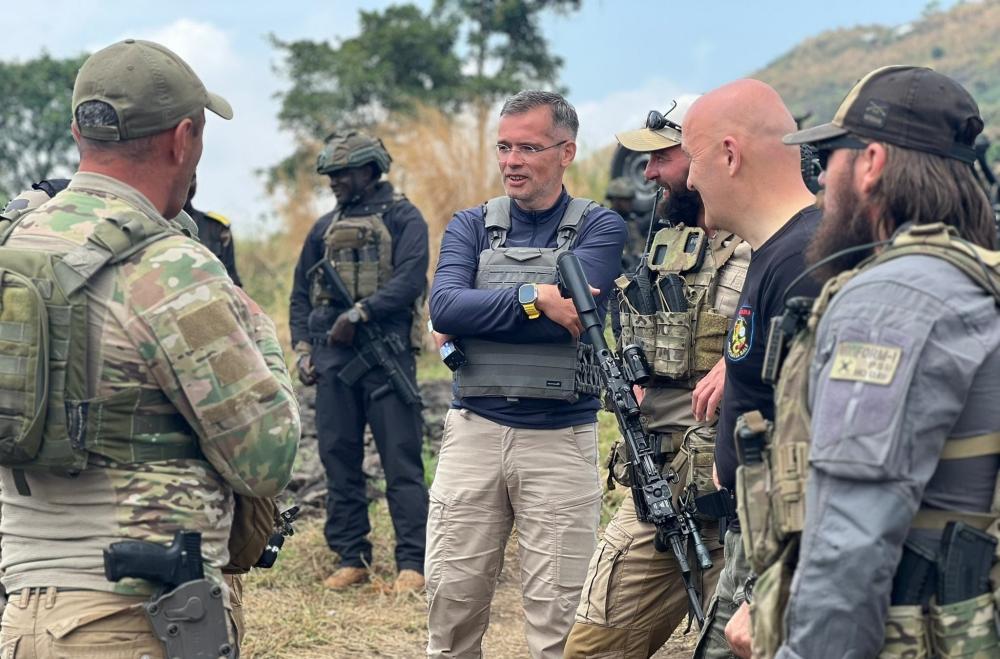Emmanuel Murangira
Africa-Press – Rwanda. Thirty-one years ago, the world watched in silence as the Genocide against the Tutsi unfolded in Rwanda. Today, a chilling echo reverberates across the border in eastern Democratic Republic of Congo (DRC).
Once again, the international community is not merely looking away—it is watching and taking sides. As the saying goes, “they have chosen where their bread is buttered.”
The international community’s silence is a deafening testament to its complicity in what is, by all intents and purposes, a systematic, well-planned, and orchestrated ethnic cleansing—an outright genocide.
The prevailing narrative—a simplistic portrayal of a “war for resources”—serves as a convenient smokescreen. It obscures the deeply rooted ethnic hatred and the deliberate targeting of specific communities, particularly the Tutsi.
Yes, the region is rich in minerals. But reducing the violence to economic competition is a dangerous and deliberate act of trivialisation. It allows the world to shrug its shoulders and frame the atrocities as unfortunate side effects of a resource scramble—rather than what they truly are: a campaign of extermination driven by hate.
The global condemnation of Tutsi self-defense groups, even as they face relentless attacks, further underscores this complicity. When a community is actively hunted, their villages burned, and their people slaughtered, the right to self-preservation becomes not only valid but necessary.
To condemn those defending themselves while ignoring their aggressors and the genocidal rhetoric driving the violence is not neutrality—it is tacit endorsement.
Equally disturbing is the selective resettlement of Congolese Tutsi refugees in northern hemisphere countries. This process resembles a veiled and forced dispossession, seemingly orchestrated to clear these communities from their mineral-rich ancestral lands—lands now eyed by multinational mining interests.
This adds another layer of sinister intent to an unfolding tragedy rooted in greed and a callous disregard for African lives.
The ongoing land grab, under the guise of humanitarian intervention, appears to be a calculated effort not only to physically eliminate the Tutsi population, but to erase their historical presence and exploit the land they once called home.
This is the culmination of a scheme that traces its roots to colonial-era ideologies conceived by Belgian authorities and implemented with devastating consequences across Rwanda, Burundi, and the Congo.
The most damning evidence of this deliberate campaign of ethnic cleansing lies in the rising tide of hate speech and incitement to violence from senior officials in Kinshasa.
Reports of individuals being killed, incinerated, and even cannibalised—allegedly at the instigation of Congolese leaders—paint a horrifying picture of dehumanisation and barbarity. This is not random violence; it is targeted, systematic, and fueled by ethnic hatred.
The echoes of 1994 are unmistakable. The dehumanization, the incitement, the systematic targeting of a specific ethnic group—the warning signs are glaring. Yet the international community, burdened by historical guilt but paralyzed by present-day interests, offers little more than vague statements and ineffective diplomacy.
The international community’s complicity lies not only in its failure to condemn hate speech or hold perpetrators accountable. It lies in its refusal to protect vulnerable communities and in its acceptance of the false “war for resources” narrative. Its selective outrage and indifference to atrocities are stains on its conscience.
The relentless focus on the M23 rebel group further illustrates this bias. By placing blame squarely on M23, the international community distracts from the real issue—punishing the victims while the true perpetrators remain untouched. This misdirected approach undermines justice and allows the cycle of violence to continue unchecked.
Ultimately, the international community’s role in the ongoing ethnic cleansing in eastern DRC extends beyond silence. Its willful ignorance, inaction, and prioritization of economic interests over human lives render it complicit in the violence.
The world must call this crisis what it is, hold all perpetrators and enablers to account, and take decisive, urgent action. The time for ineffectual diplomacy has long passed. If the world fails to act now, it risks once again being judged—not as a bystander, but as an accomplice in genocide.
Source: The New Times
For More News And Analysis About Rwanda Follow Africa-Press






